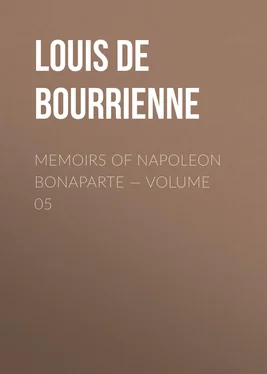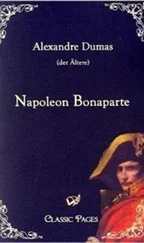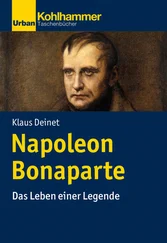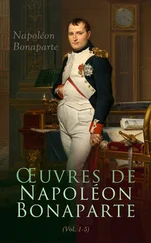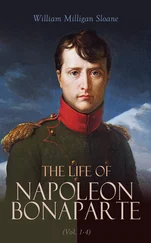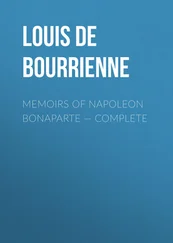Louis Bourrienne - Memoirs of Napoleon Bonaparte — Volume 05
Здесь есть возможность читать онлайн «Louis Bourrienne - Memoirs of Napoleon Bonaparte — Volume 05» — ознакомительный отрывок электронной книги совершенно бесплатно, а после прочтения отрывка купить полную версию. В некоторых случаях можно слушать аудио, скачать через торрент в формате fb2 и присутствует краткое содержание. Жанр: Биографии и Мемуары, История, foreign_edu, foreign_antique, foreign_prose, на английском языке. Описание произведения, (предисловие) а так же отзывы посетителей доступны на портале библиотеки ЛибКат.
- Название:Memoirs of Napoleon Bonaparte — Volume 05
- Автор:
- Жанр:
- Год:неизвестен
- ISBN:нет данных
- Рейтинг книги:3 / 5. Голосов: 1
-
Избранное:Добавить в избранное
- Отзывы:
-
Ваша оценка:
- 60
- 1
- 2
- 3
- 4
- 5
Memoirs of Napoleon Bonaparte — Volume 05: краткое содержание, описание и аннотация
Предлагаем к чтению аннотацию, описание, краткое содержание или предисловие (зависит от того, что написал сам автор книги «Memoirs of Napoleon Bonaparte — Volume 05»). Если вы не нашли необходимую информацию о книге — напишите в комментариях, мы постараемся отыскать её.
Memoirs of Napoleon Bonaparte — Volume 05 — читать онлайн ознакомительный отрывок
Ниже представлен текст книги, разбитый по страницам. Система сохранения места последней прочитанной страницы, позволяет с удобством читать онлайн бесплатно книгу «Memoirs of Napoleon Bonaparte — Volume 05», без необходимости каждый раз заново искать на чём Вы остановились. Поставьте закладку, и сможете в любой момент перейти на страницу, на которой закончили чтение.
Интервал:
Закладка:
The only thing worthy of remark in this letter would be the concluding sentence, in which the First Consul still affected to acknowledge the sovereignty of the people, were it not that the words "Citizens Consuls" were evidently foisted in with a particular design. The battle was gained; and even in a trifling matter like this it was necessary that the two, other Consuls should feel that they were not so much the colleagues as the subordinates of the First Consul.
We returned to Milan, and our second occupation of that, city was marked by continued acclamations wherever the First Consul showed himself. At Milan the First Consul now saw Massena for the first time since our departure for Egypt. Bonaparte lavished upon, him the highest praises, but not higher than he deserved, for his admirable, defence of Genoa. He named him his successor in the command of the army of Italy. Moreau was on the Rhine, and therefore none but the conqueror of Zurich could properly have succeeded the First Consul in that command. The great blow was struck; but there might still occur an emergency requiring the presence of a skillful experienced general, well acquainted with the country. And besides, we could not be perfectly at ease, until it was ascertained what conditions would be adhered to by the Cabinet of Vienna, which was then entirely under the influence of the Cabinet of London. After our return from the battle the popular joy was general and heartfelt not only among the higher and middle ranks of society, but in all classes; and the affection evinced from all quarters to the First Consul was unfeigned. In what a tone of sincerity did he say to me one day, when returning from the parade, "Bourrienne, do you hear the acclamations still resounding? That noise is as sweet to me as the sound of Josephine's voice. How happy and proud I am to be loved by such a people!"
During our stay at Milan Bonaparte had arranged a new government for Piedmont; he had ever since cherished the wish to unite that rich and fertile country to the French territory because some Piedmontese provinces had been possessed by Louis XIV. That monarch was the only king whom the First Consul really admired. "If," said he one day, "Louis XIV. had not been born a king, he would have been a great man. But he did not know mankind; he could not know them, for he never knew misfortune." He admired the resolution of the old King, who would rather bury himself under the ruins of the monarchy than submit to degrading conditions, after having commanded the sovereigns of Europe. I recollect that Bonaparte was extremely pleased to see in the reports which he ordered to be made that in Casal, and in the valleys of Pignerol, Latour, and Luzerne, there still existed many traces of the period when those countries belonged to France; and that the French language was yet preserved there. He already began to identify himself with the past; and abusing the old kings of France was not the way to conciliate his favour.
The First Consul appointed for the government of Piedmont a Council which, as may naturally be imagined; he composed of those Piedmontese who were the declared partisans of France. He stated as the grounds of this arrangement that it was to give to Piedmont a new proof of the affection and attachment of the French people. He afterwards appointed General. Dupont President of the Council, with the title of Minister-Extraordinary of the French government. I will here mention a secret step taken by Bonaparte towards the overthrowing of the Republic. In making the first draught of General Dupont's appointment I had mechanically written, "Minister-Extraordinary of the French Republic."—"No! no!" said Bonaparte, "not of the Republic; say of the Government."
On his return to Paris the First Consul gave almost incredible proofs of his activity. The day after his arrival he promulgated a great number of decrees, and afterwards allotted the rewards to his soldiers. He appointed Kellerman General of division which, on every principle of justice, he ought to have done on the field of battle. He distributed sabres of honour, with the following inscription, highly complimentary to himself:—
"Battle of Maringo,—[spelt for some time, I do not know why, as, Maringo—Bourrienne]— commanded in person by the First Consul. —Given by the Government of the Republic to General Lannes."
Similar sabres where presented to Generals Victor, Watrin, Gardanne, and Murat; and sabres of less value to other officers: and also muskets and drumsticks of honour to the soldiers and drummers who had distinguished themselves at Marengo, or in the army of the Rhine; for Bonaparte took care that the officers and men who had fought under Moreau should be included among those to whom the national rewards were presented. He even had a medal struck to perpetuate the memory of the entry of the French army into Munich. It is worthy of remark that while official fabrications and exaggerated details of facts were published respecting Marengo and the short campaign of Italy, by a feigned modesty the victorious army of Marengo received the unambitious title of 'Army of Reserve'. By this artifice the honour of the Constitution was saved. The First Consul had not violated it. If he had marched to the field, and staked everything on a chance it was merely accidentally, for he commanded only an "Army of Reserve," which nevertheless he had greeted with the title of Grand Army before he entered upon the campaign. It is scarcely conceivable that Bonaparte, possessing as he did an extraordinary mind, should have descended to such pitiful artifices.
—[ Thiers (tome. vi., p. 70) says the title Grande Armee was first given by Napoleon to the force prepared in 1805 for the campaign against Austria. The Constitution forbad the First Consul to command the armies in person. Hence the title, "Army of Reserve," gives to the force which fought Marengo.]—
Even foreigners and prisoners were objects of Bonaparte's designing intentions. I recollect one evening his saying to me; "Bourrienne, write to the Minister of War, and tell him to select a fine brace of pistols, of the Versailles manufacture, and send them, in my name, to General Zach. He dined with me to-day, and highly praised our manufacture of arms. I should like to give him a token of remembrance; besides,—the, matter will be talked of at Vienna, and may perhaps do good!"
As soon as the news of the battle of Marengo reached Paris Lucien Bonaparte, Minister of the Interior, ordered preparations for the festival, fixed for the 14th of July, in commemoration of the first Federation. This festival and that of the 1st Vendemiaire were the only ones preserved by the Consular Government. Indeed, in those memorable days, when the Revolution appeared in its fairest point of view, France had never known such joy as that to which the battle of Marengo gave rise. Still, amidst all this popular transport there was a feeling of regret. The fame of Desaix, his heroic character, his death, the words attributed to him and believed to be true, caused mourning to be mingled with joy. It was agreed to open a subscription for erecting a national monument to his memory. A reflection naturally arises here upon the difference between the period referred to and the present time. France has endowed with nearly a million the children of one of her greatest orators and most eloquent defenders of public liberty, yet, for the monument to the memory of Desaix scarcely 20,000 francs were subscribed. Does not this form a singular contrast with the patriotic munificence displayed at the death of General Foy? The pitiful monument to Desaix, on the Place Dauphins, sufficiently attests the want of spirit on the part of the subscribers. Bonaparte, who was much dissatisfied with it, gave the name of Desaix to a new quay, the first stone of which was laid with great solemnity on the 14th of July.
Читать дальшеИнтервал:
Закладка:
Похожие книги на «Memoirs of Napoleon Bonaparte — Volume 05»
Представляем Вашему вниманию похожие книги на «Memoirs of Napoleon Bonaparte — Volume 05» списком для выбора. Мы отобрали схожую по названию и смыслу литературу в надежде предоставить читателям больше вариантов отыскать новые, интересные, ещё непрочитанные произведения.
Обсуждение, отзывы о книге «Memoirs of Napoleon Bonaparte — Volume 05» и просто собственные мнения читателей. Оставьте ваши комментарии, напишите, что Вы думаете о произведении, его смысле или главных героях. Укажите что конкретно понравилось, а что нет, и почему Вы так считаете.
